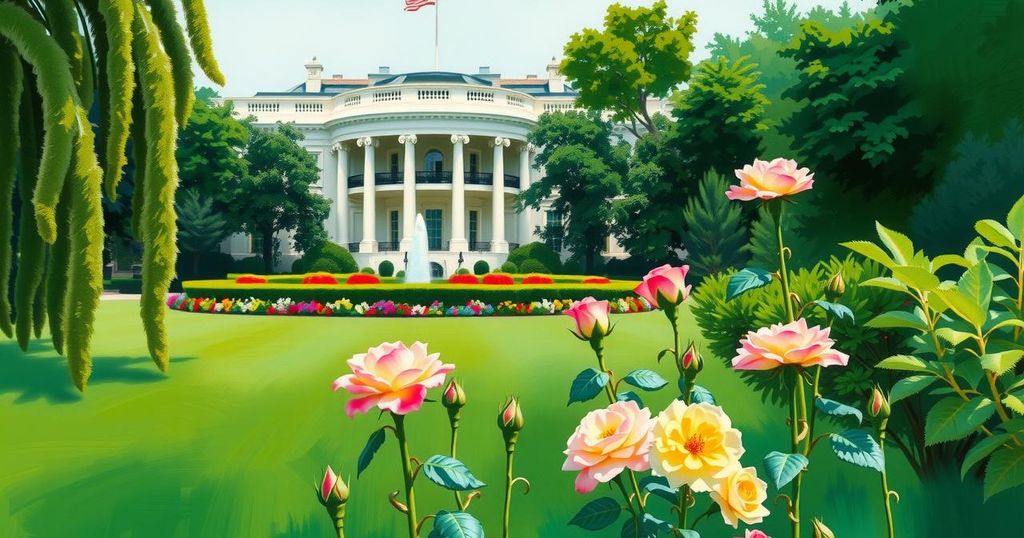President Trump is set to announce reciprocal tariffs on April 2, targeting various countries including India and China. This move, including a possible 20% tax on imports, aims to impact U.S. pricing and international trade relations significantly. The announcement will occur at 4 PM Washington time in the White House’s Rose Garden.
As the world braces for President Donald Trump’s tariff announcement on April 2, dubbed “Liberation Day,” significant attention is focused on the implications for various countries. The White House criticized India for its 100% tariff on US agricultural products and indicated similar barriers from the EU, Japan, and Canada, heightening anticipatory tensions regarding the forthcoming tariffs.
President Trump’s team is reportedly developing a plan to implement a 20% tax on most U.S. imports, with speculation that the funds could be used for tax refunds or dividends to American citizens. This move marks a notable shift in trade policy and may affect consumer prices significantly.
The announcement is set for 4:00 pm Washington time in the White House’s Rose Garden. While spokeswoman Karoline Leavitt noted that immediate enactment of the tariffs could put financial pressure on importing companies, this may lead to increased product prices or supplier changes, risking a recession in the U.S. market and beyond.
The concept of reciprocal tariffs introduces surcharges based on trade levies imposed by other nations on American exports. Such tariffs can vary significantly by country, contributing to the complexities of international trade relations.
In addition to previously imposed tariffs on aluminum and steel, new tariffs on automobiles will take effect on April 3. These further developments compound the existing trade measures imposed by the U.S.
In a related move, Israel, under Prime Minister Benjamin Netanyahu, has eliminated all customs duties on U.S. goods, signaling a shift in its trade policies aimed at strengthening ties with the U.S. amid the ongoing tariff discussions.
Australia’s Prime Minister Anthony Albanese has also voiced that he will defend Australian national interests without retaliating against U.S. tariffs. Australia currently benefits from a trade surplus with the U.S. and maintains a free trade agreement that imposes no tariffs on American exports.
While details remain scarce, Trump hinted at applying tariffs to “all countries.” Preliminary reports from the U.S. Trade Representative’s office indicate a focus on several nations, including India, Canada, China, and EU members, amongst others.
Expect live updates as the countdown to Trump’s announcement continues, as significant global economic implications are poised to follow the implementation of these tariffs during this pivotal moment in trade policy.
In summary, President Trump’s anticipated announcement of reciprocal tariffs on April 2 could have profound effects on international trade and domestic pricing strategies. While the specifics await official release, the potential for 20% tariffs on imports and immediate enforcement poses risks of rising consumer costs and economic downturns. Countries are closely monitoring the announcement that could alter existing trade dynamics significantly.
Original Source: www.financialexpress.com






